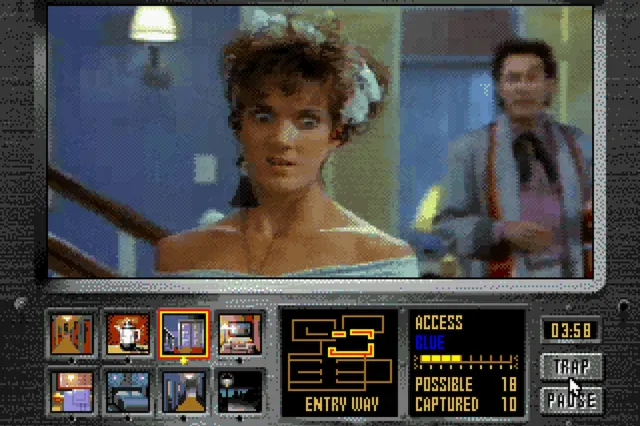Former Senator Joe Lieberman Passed Away
Former Senator Joe Lieberman passed away on Wednesday, March 27, 2024, at the age of 82. His family announced that he died in New York after suffering complications from a fall, with his wife Hadassah and other loved ones by his side.
(HEY YOU!! We hope you enjoy! We try not to run ads. So basically, this is a very expensive hobby running this site. Please consider joining us for updates, forums, and more. Network w/ us to make some cash or friends while retro gaming, and you can win some free retro games for posting. Okay, carry on 👍)
Joe Lieberman: The Senator Who Waged War on Video Games
As a passionate video game enthusiast, I can’t help but feel a mix of emotions upon learning about the passing of former Senator Joe Lieberman. While it’s always sad to lose a public figure, I can’t ignore the fact that Lieberman was one of the most vocal and misguided critics of the video game industry during his time in office.
Wondermega from reddit had this to say shortly after his death:
He’s just wandering through an endless, infinite arcade with no doors or windows. It’s dark and dank and sticks of sweat and stale nicotine. Puddles of beer here and there on the floor, and just nonstop clusters of arcade cabinets featuring games where digitized warriors are ripping one another’s spines out. Angry, wayward youth with bandanas in their hair and sleeveless denim jackets with Iron Maiden patches in the backs, barking and yelling at each other while they duel on the machines.
Back in the 1990s and early 2000s, Lieberman spearheaded a crusade against video games, painting them as a threat to society and a corrupting influence on youth. He was a key figure in the 1993 Senate hearings on video game violence, where he infamously stated, “The games are horrendously violent, and they’re addictive to kids.” This statement alone showcases his complete lack of understanding and willingness to engage in fearmongering rather than fact-based discussions.
Lieberman’s anti-video game stance led to the creation of the Entertainment Software Rating Board (ESRB) in 1994, a self-regulatory body for the video game industry. While the ESRB has undoubtedly played a role in providing content ratings and information to consumers, its creation was largely a response to the political pressure and threats of government regulation pushed by Lieberman and his allies.
Joe Lieberman’s Misguided Crusade Against Night Trap
When I think back to the early 1990s and the controversy surrounding the video game Night Trap, one name immediately comes to mind: Senator Joe Lieberman. As a young gamer at the time, I remember the fear and uncertainty that gripped the gaming community when Lieberman set his sights on this interactive movie game, claiming it was a prime example of the depravity and violence in video games.
Night Trap, for those unfamiliar, was a full-motion video game released in 1992 for the Sega CD. The objective was to protect a group of teenage girls from vampiric beings known as Augers. The game featured live-action footage of actors, and the gameplay consisted of switching between different cameras to monitor the house and activate traps to capture the Augers.
Lieberman latched onto Night Trap as a poster child for everything he believed was wrong with the video game industry. He claimed that the game was excessively violent and sexually explicit, going so far as to describe it as “sick” and “disgusting.” His inflammatory rhetoric sparked a media frenzy, and suddenly, Night Trap was at the center of a national debate about the role of video games in society.
As a young gamer, I remember the fear and excitement I felt when I thought Night Trap was going to be banned because of Lieberman’s crusade. Fearing that I might miss out on this controversial game, I begged my mom to buy it for me before it was too late. Little did I know that the game was hardly as graphic or explicit as Lieberman had led us to believe.
Looking back now, it’s clear that Lieberman’s criticisms of Night Trap were greatly exaggerated and misguided. The game’s violence was tame by today’s standards, and the sexual content was limited to some mildly suggestive dialogue and outfits. In fact, the game’s campy, B-movie aesthetic was part of its charm and appeal.
What’s more concerning is that Lieberman used Night Trap as a platform to attack the entire video game industry. He painted all video games with the same broad brush, claiming that they were a threat to society and needed to be heavily regulated, if not outright banned. This kind of fearmongering and misinformation only served to stifle creativity and innovation in the gaming industry.
He Never Gave Up
What bothers me the most about Lieberman’s approach to video games is his blatant disregard for the artistic merit and creative expression that this medium offers. Video games are not merely entertainment; they are a form of art that allows developers to tell compelling stories, explore complex themes, and push the boundaries of interactive experiences. By constantly vilifying video games and paintingthem as a societal menace, Lieberman contributed to the stigmatization of an entire industry and its fans.
Moreover, Lieberman’s claims about the link between video games and real-world violence have been repeatedly debunked by numerous studies and expert opinions. It’s frustrating to see a public figure with such influence perpetuate misinformation and use it to justify misguided policies and regulations.
As someone who has grown up with video games and witnessed their evolution and positive impact firsthand, I can’t help but feel disappointed by Lieberman’s legacy in this regard. While he may have had good intentions in trying to protect children, his approach was misguided, uninformed, and ultimately harmful to an industry that has brought joy, creativity, and innovation to millions of people worldwide.
In conclusion, while I respect Joe Lieberman’s service to his country, I cannot overlook his role in demonizing video games and contributing to the misconceptions that still persist to this day. As gamers, we must continue to advocate for our hobby, educate others about the positive aspects of gaming, and challenge those who seek to undermine our passion with baseless accusations and fearmongering. Rest in peace, Senator Lieberman, but let’s hope that your misguided crusade against video games can finally be put to rest as well.
 Retro Replay Retro Replay gaming reviews, news, emulation, geek stuff and more!
Retro Replay Retro Replay gaming reviews, news, emulation, geek stuff and more!






